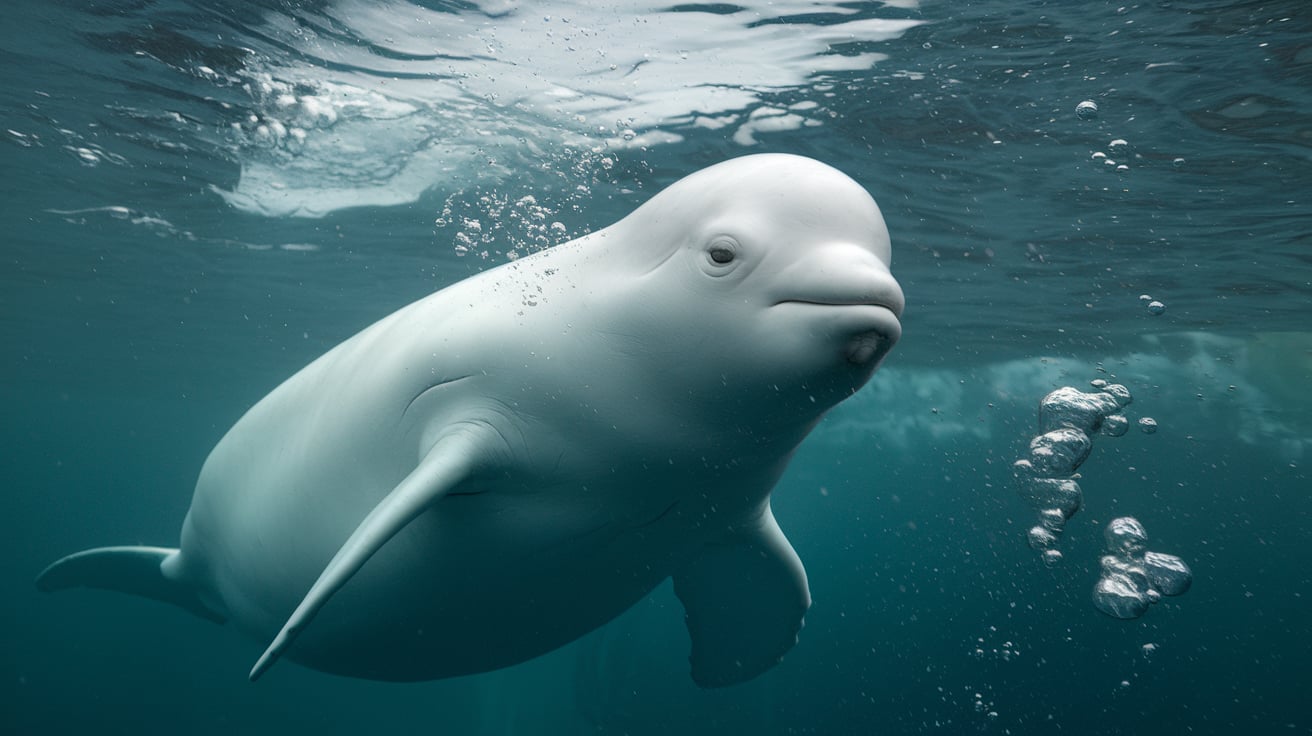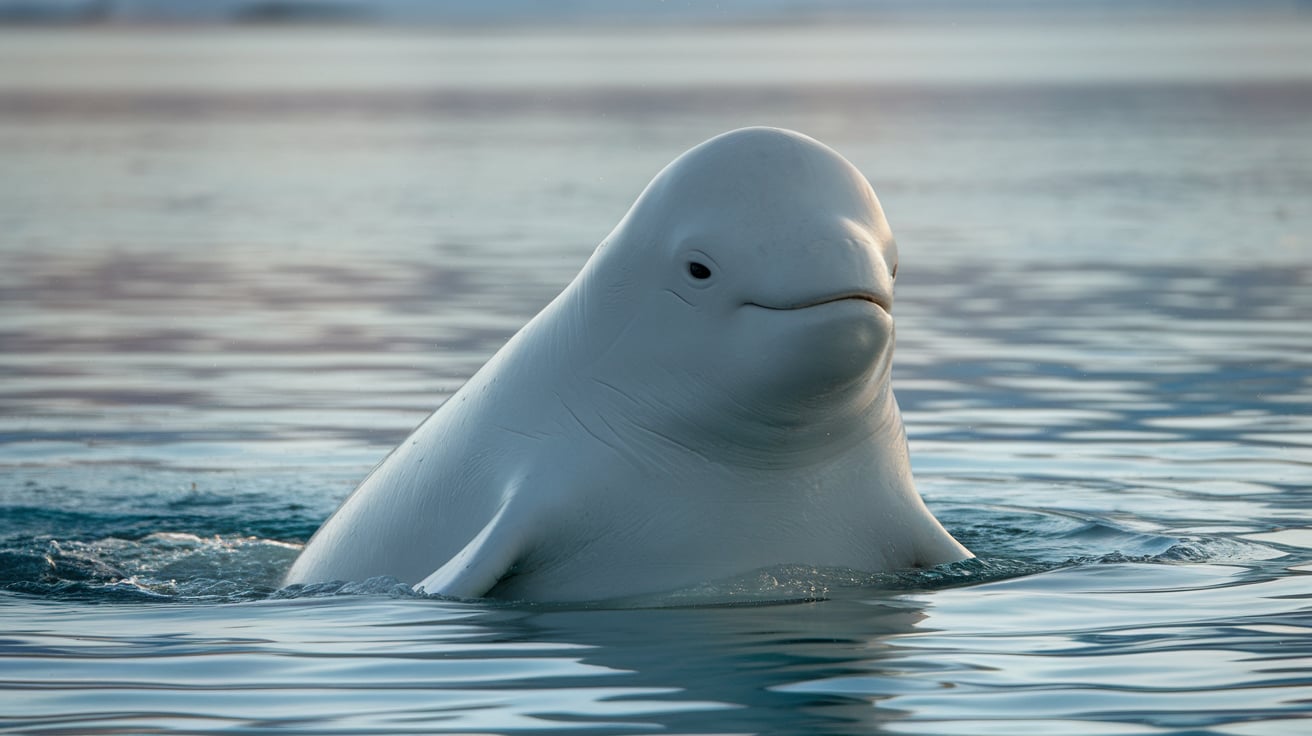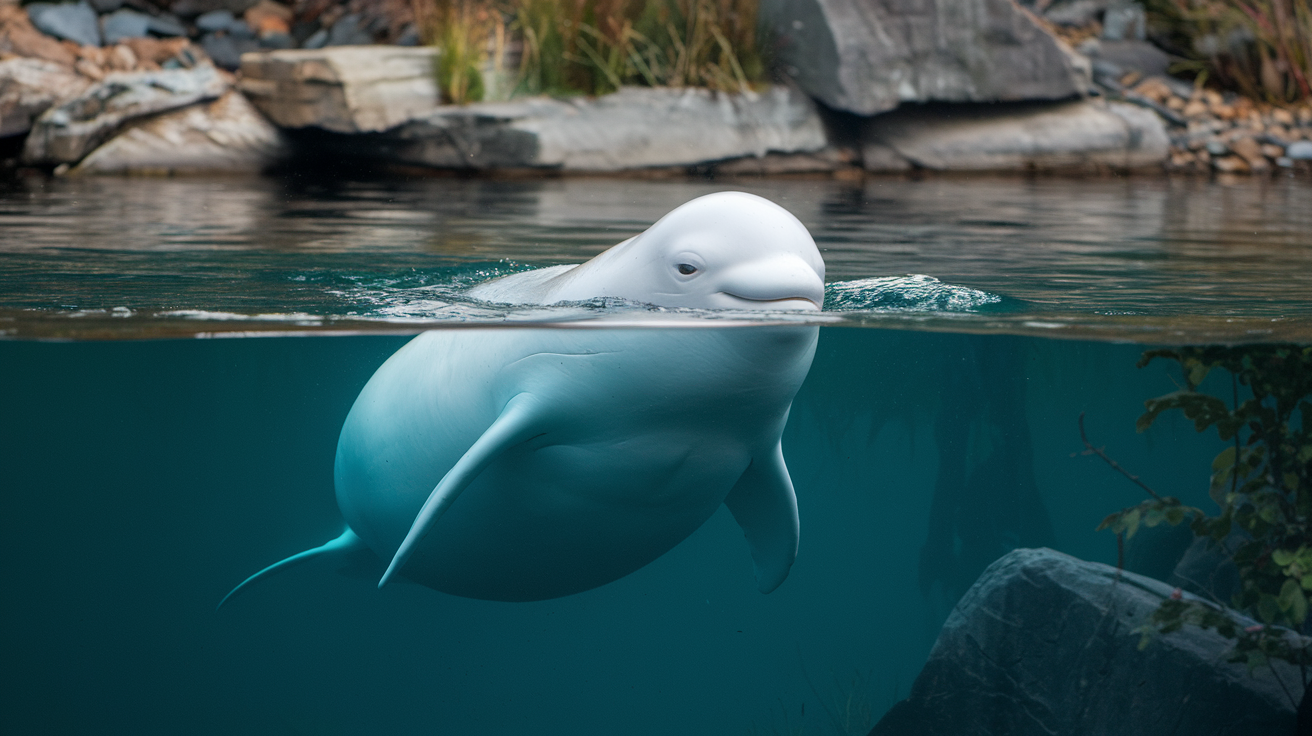
The Beluga Whale (*Delphinapterus leucas*) is a small-to-medium-sized whale found in Arctic and sub-Arctic waters. Known for their distinctive white color and prominent melon (the rounded forehead), these whales are often referred to as "canaries of the sea" due to their wide range of vocal sounds. Belugas are social creatures and are frequently seen in groups, or pods, making them one of the most vocal marine mammals.
Belugas are highly adaptable and are capable of living in some of the coldest waters of any cetacean. They primarily feed on fish, crustaceans, and other invertebrates, and are known to dive to depths of over 800 meters (2,600 feet) in search of food. Their ability to communicate with each other through clicks, whistles, and chirps makes them unique in the world of marine mammals. Unfortunately, the Beluga whale is facing increasing threats from climate change, habitat destruction, and human activities like shipping and oil exploration.

As an important part of the Arctic ecosystem, Belugas are facing challenges due to the effects of global warming. Melting ice is reducing their habitat, and as Arctic waters warm, the availability of their prey is also threatened. Conservation efforts are critical to ensuring that Beluga whales continue to thrive in the wild, especially as they are protected under various environmental regulations in Canada, the U.S., and Russia.
